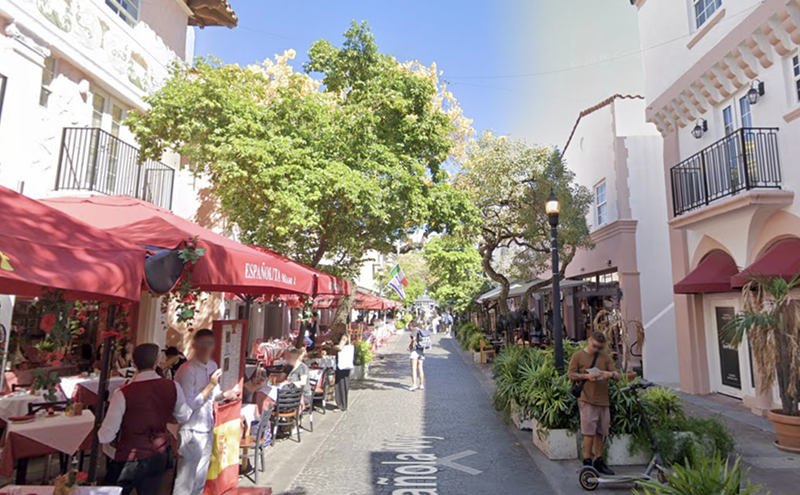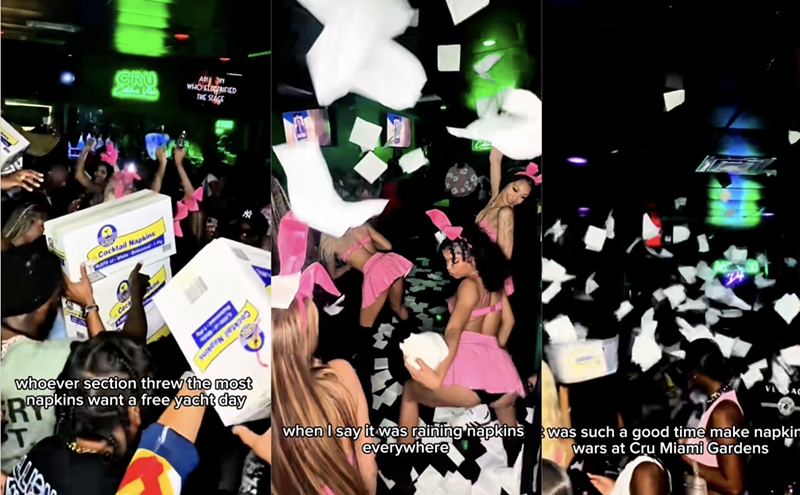Although the two-plays-at-once idea is a gimmick, it's an intriguingly unusual one. The scripts themselves -- and their typical English drawing-room characters -- are something less than stellar, ranging widely in effectiveness, from occasional flashes of comedic éclat to rather muddled, tedious sequences. As with many other of Ayckbourn's bittersweet comedies (he's been banging them out with regularity since the late 1950s), House and Garden involve faltering marriages and relentless socializing -- a luncheon in House and a local festival taking place in Garden -- that must proceed regardless of personal turmoil.
Ayckbourn's women tend to be smarter and better than their men and the working classes more likable than their social superiors. Moreover, British bourgeois life in general is always in for a regular drubbing. House centers on local squire Teddy Platt, who is in the middle of a not-so-secret amour with his emotionally fragile neighbor Joanna Mace, which prompts his wife, Trish, to ignore his very existence. Worse, he's expecting a visit from an old school chum, Gavin Ryng-Mayne, a novelist and political insider who may be coming to ask that Teddy stand for Parliament. Can politically ambitious Teddy keep his adultery secret from Gavin as well as from his neighbor, Joanna's trusting husband Giles?
Meanwhile in Garden, fussbudget events planner Barry Love bosses around his browbeaten wife Lindy. They scurry to set up the festival tents and game booths while storm clouds threaten, and taciturn gardener Warren Coucher must sort through his complicated relationships with the Platts' housekeeper and her sexy daughter. Some events portrayed in one play suddenly intrude inexplicably into the other. For example, Coucher's ménage à trois problems play out in Garden, ultimately boiling up in a chase scene that spills into House. The effect of these sudden intrusions from the other play is something like witnessing a restaurant spat between strangers sitting at an adjacent table -- the spectacle is fascinating, but the details of what's going on or how it began can only be wondered at.
The Playhouse bills House and Garden as two stand-alone plays that can be seen in any order. This may be Ayckbourn's intent, but the reality is something else. House is easily the better of the two plays, sporting a classic comedic structure and a clear dramatic problem that works its way out cleanly and completely. Meanwhile, Garden meanders along more organically, a Chekhovian mélange that's more about mood and emotion than plot. Garden's chief appeal is that it brings to life many scenes and character traits that House conceals or mentions only in passing. As a result, Garden feels less like a fully complementary play and more like an appendix to House. Audiences, therefore, should be advised to take in House first followed by Garden.
Artistic director David Arisco earns praise for staging both plays with flair, though he seems more at ease with House and its classic comic permutations. Garden, which lacks much suspense or drive, could have benefited from more staging detail -- the gardener doesn't do any gardening, and the particulars of setting up the festival, rather than being built into the action, are taken care of by stagehands during the intermission. The large cast features several top-flight performances as well as some misfires. Gary Marachek does a skillfully hilarious turn as Teddy, the scotch-sodden philanderer with a growling, Churchillian voice and first-rate comic timing; he energizes every scene he's in. Sandy Ives performs well as his outraged wife, as does Pia Pownall as Lucille Cadeau, a French movie starlet whose arrival at lunch (a brief supporting role in House) plays out in an extended, rain-soaked bilingual romance with Teddy in Garden. Bob Rogerson as Teddy's old pal Gavin brings a nice dash of danger and kinky desire. Heath Kelts is effective and affecting as the betrayed neighbor. As might be expected, the accents range from spot-on (some of the actors hail from Commonwealth countries) to execrable -- some of the cast is flat-out tone-deaf to British speech.
The production is notable not only for its mind-boggling logistics (even the curtain calls are a scheduling nightmare, because the cast must race between the two theaters), but also for its effects, such as a full-fledged, onstage rainstorm in Garden.












